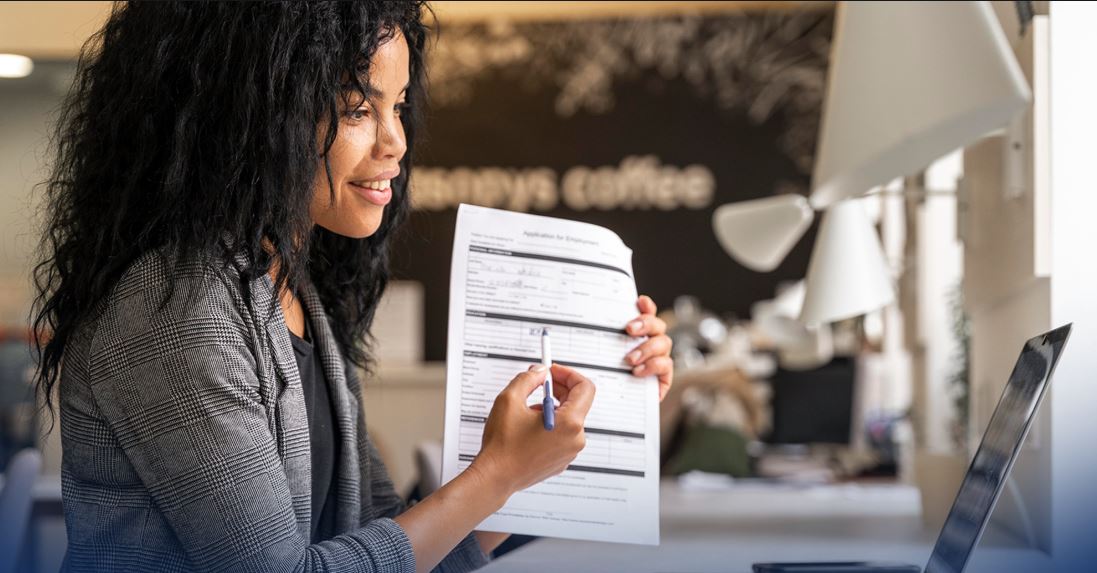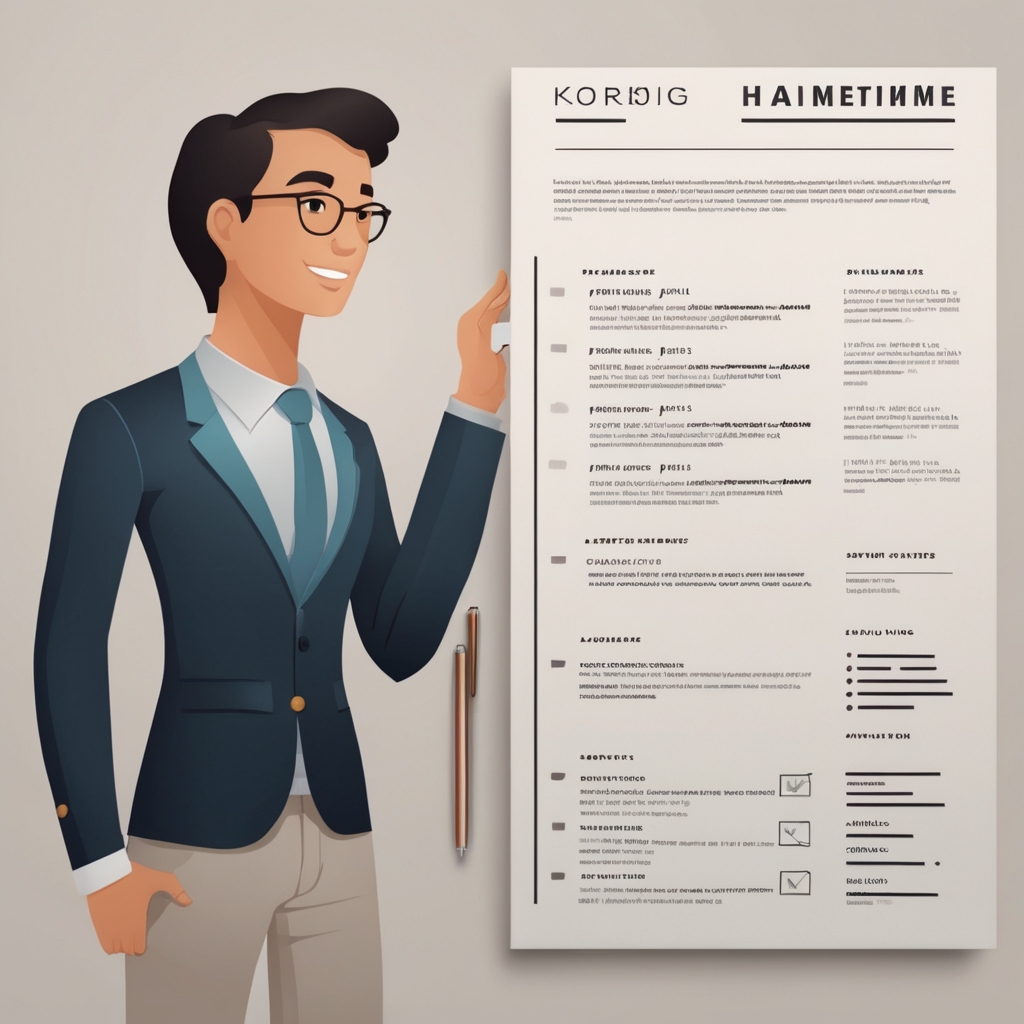So, you’ve just walked out of an interview (or closed your laptop after a virtual one), and now you’re left wondering—what’s next? Should you sit tight and wait for a response, or should you follow up?
The truth is, following up after a job interview isn’t just a formality, it’s a strategic move that can make a big difference in whether you land the job or not. Many job seekers make the mistake of assuming that if they don’t hear back, the employer isn’t interested. But in reality, hiring processes take time, and a well-timed follow-up can keep you on the hiring manager’s radar.
In this article, we’ll break down five compelling reasons why following up is essential. Then, we’ll show you exactly how to follow up the right way without being pushy or annoying. Finally, we’ll highlight some common mistakes to avoid so that your follow-up works in your favor instead of against you.
5 Reasons Why You Should Follow Up After a Job Interview
1. It Shows Enthusiasm and Passion for the Job
Hiring managers want to hire people who genuinely want the job. Employers aren’t just looking for someone with the right skills but also for someone who is excited about working for their company.
By following up, you signal to the employer that you’re still interested and eager to contribute. It reassures them that you didn’t just apply on a whim and that you’re motivated to join their team.
How to do it right: Send a follow-up email within 24 hours of the interview, expressing your gratitude and reiterating your enthusiasm for the role. Mention something specific from the conversation to make your message feel personal.
2. It Keeps You on the Employer’s Radar
Sometimes, the hiring process takes longer than expected. Hiring managers juggle multiple responsibilities, and in some cases, decisions get delayed due to internal discussions, budget approvals, or additional interviews.
A polite follow-up ensures that your name stays fresh in the recruiter’s mind. It also shows that you are proactive and genuinely invested in the opportunity.
How to do it right: If you haven’t heard back after a week, send a short and professional email checking in. Keep it simple and ask about the timeline for the next steps.
3. It Gives You a Chance to Reaffirm Your Strengths
Sometimes, after an interview, you might realize there was something you forgot to mention—a crucial skill, an achievement, or an idea that could have strengthened your case.
Your follow-up email is the perfect opportunity to reinforce why you’re the right fit. You can subtly remind the hiring manager of your key strengths and why you’d be a valuable addition to their team.
How to do it right: If there’s something important you didn’t get to say during the interview, briefly mention it in your follow-up email. For example, “I also wanted to highlight my experience with XYZ, which I believe would be valuable in this role.”
4. It Demonstrates Professionalism and Good Etiquette
Good manners go a long way in any professional setting. Sending a follow-up email shows gratitude and reinforces a positive impression of you as a polite and well-mannered professional.
Employers take note of these small details. A candidate who takes the time to send a thoughtful thank-you note is more likely to be remembered positively compared to someone who remains silent after the interview.
How to do it right: Your follow-up should always start with gratitude. Thank the interviewer for their time, acknowledge their insights, and show appreciation for the opportunity.
5. It Can Help You Stand Out from Other Candidates
Let’s be real—many job seekers don’t follow up. They assume that if an employer is interested, they will reach out. This assumption puts them at a disadvantage.
A well-crafted follow-up email differentiates you from other candidates and demonstrates your professionalism, enthusiasm, and attention to detail. It’s a small action that can have a huge impact on your chances of getting hired.
How to do it right: End your follow-up email on a confident yet polite note, reaffirming your interest and offering to provide any additional information they may need.
How to Follow Up After an Interview (Without Being Annoying)
Now that you understand why following up is important, let’s talk about how to do it correctly.
Step 1: Send a Thank-You Email Within 24 Hours
- Keep it short, professional, and personalized.
- Thank the interviewer for their time and the opportunity.
- Reaffirm your enthusiasm for the role and company.
- Mention a specific highlight from the interview.
Step 2: Follow Up Again If You Haven’t Heard Back
- If no response after one week, send a polite check-in email.
- Ask about the timeline for the next steps.
- Keep it brief and professional.
Step 3: Know When to Move On
- If you’ve followed up twice and still haven’t received a response, it may be time to move on.
- Continue your job search and explore other opportunities.
- If they respond later, great! But don’t put your career on hold waiting for a single employer.
Common Follow-Up Mistakes to Avoid
While following up is important, there’s a right and wrong way to do it. Here are some common mistakes to avoid:
1. Being Too Pushy
Don’t send multiple emails in a short period or demand an answer. Hiring managers are busy, and constant follow-ups can come off as desperate or annoying.
2. Using a Generic Email
Avoid copy-pasting a generic “Thank you for your time” message. Personalize it based on the conversation you had.
3. Sounding Too Casual or Too Formal
Strike the right balance—be professional yet conversational. Overly formal emails can feel stiff, while overly casual messages can seem unprofessional.
4. Forgetting to Proofread
A follow-up email full of typos and grammar mistakes can hurt your credibility. Always proofread before hitting send.
5. Following Up Too Soon
Give the employer time to process applications and make decisions. Following up immediately after an interview can seem impatient.
How LightForth Can Help You Nail the Follow-Up
Following up after an interview shouldn’t be stressful or confusing. LightForth Interview Prep helps job seekers prepare not only for interviews but also for strategic follow-ups that keep them in the game. With AI-powered suggestions, ready-to-use email templates, and insights into hiring trends, you’ll never have to guess whether you’re doing it right.
Instead of wondering if you should follow up or how to phrase it, let LightForth guide you every step of the way so you can focus on what matters: landing the job.






